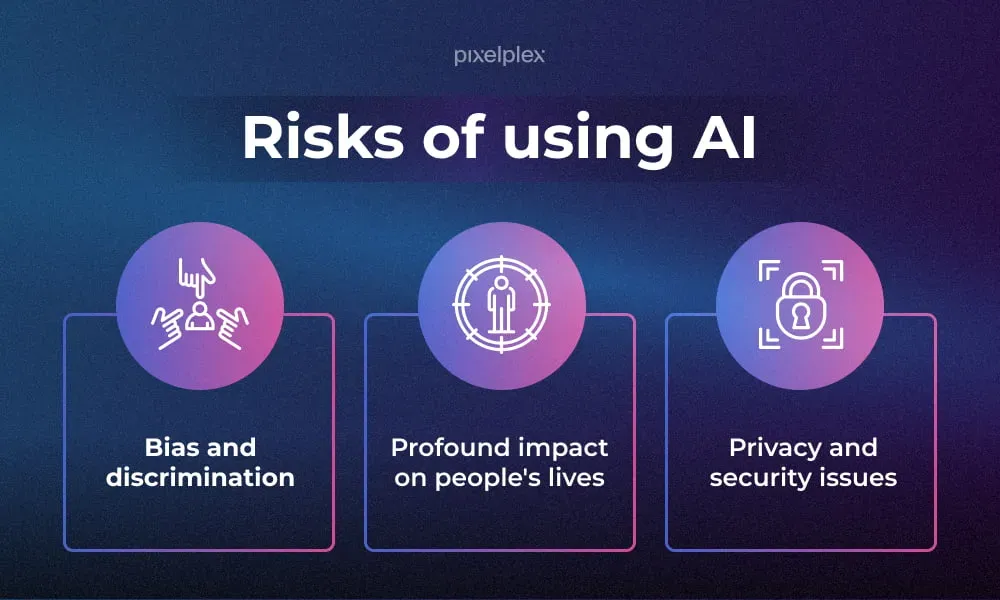AI regulation has become a critical topic in recent discussions around tech governance, especially following the recent Senate vote that dramatically altered the landscape for artificial intelligence laws in the U.S. The rejection of a proposed 10-year ban on state-level AI regulations marks a significant moment for Big Tech oversight, as lawmakers expressed the need for more robust AI safety measures. Advocates for regulation argue that the absence of proper guidelines allows AI companies to operate without accountability, posing risks to consumers and communities alike. This development highlights the increasing pressure on Congress to consider the implications of technology and to craft legislation that ensures responsible innovation. As debates surrounding AI continue, the outcome of Senate voting will undoubtedly influence future policies affecting the tech industry and society at large.
The oversight of artificial intelligence technologies has emerged as a vital issue, particularly after lawmakers voted to withdraw a decade-long prohibition on local AI governance in a recent legislative session. The defeat of this moratorium serves as a wake-up call to the major tech corporations, emphasizing the growing demands for comprehensive regulations tailored to protect both individuals and society. Advocates for responsible AI practices stress that without clear legal frameworks, companies could exploit their technologies with little regard for potential harm. This pivotal moment underscores the urgent need for a collaborative effort to establish critical safeguards that will ensure the ethical advancement of AI. The ongoing discussion around technological regulations will set important precedents for how society engages with emerging technologies.
The Rejection of the AI Moratorium: Implications for Regulation
The recent Senate decision to remove a 10-year ban on state-level AI regulations signifies a pivotal moment in the ongoing debate over how to manage the evolving landscape of artificial intelligence. With a resounding vote of 99-1, lawmakers have made it clear that there is significant bipartisan support for establishing regulatory frameworks that can respond to the rapid growth of technologies developed by companies like OpenAI and Google. Despite tech giants arguing against state regulations to prevent a fragmented legal environment, this vote suggests a growing recognition that regulation is vital for ensuring safe and responsible deployment of AI.
Lawmakers are now faced with the pressing need to craft comprehensive federal standards that address AI safety measures, particularly concerning vulnerable populations such as children. This shift also reflects an acknowledgment that the absence of updated legislation has left a regulatory gap that could have far-reaching consequences. As the Senate emphasizes AI oversight, we can expect discussions around new artificial intelligence laws to intensify, focusing not only on innovation but also on ethical implications and consumer protection.
Big Tech’s Influence on AI Regulation: A Double-Edged Sword
The overwhelming defeat of the moratorium indicates a significant setback for Big Tech, which has historically resisted extensive regulations designed to oversee AI development. Companies often argue that stringent laws could stifle innovation by creating barriers to entry or complicating operational practices. They claim the creation of a patchwork of state laws would only hinder technological advancement and progress. However, the recent Senate outcome highlights a growing dissatisfaction with the unchecked power of these corporations, suggesting that their influence over legislation may not be as strong as they believed.
Advocates for stronger AI regulations contend that allowing Big Tech to operate without meaningful oversight poses substantial risks to society, particularly with emerging technologies. Proponents of AI safety measures state that without proper regulations, issues like privacy invasion and the exploitation of personal data could escalate. The discussion around state-level AI regulations thus opens the floodgates for legislative reforms aimed at holding tech companies accountable while balancing the need for innovation. The outcomes of these discussions could shape the future landscape of technology governance legislatively.
AI Regulation: The Role of Bipartisan Support
The Senate’s decisive vote against the AI moratorium exhibits a rare instance of bipartisan consensus in a legislative environment often characterized by division. Democrats and Republicans alike recognized the necessity for AI regulation, fostering a collaborative atmosphere aimed at protecting local communities from potential corporate overreach. This shift toward unified support for regulatory frameworks signals that both parties may be beginning to prioritize the interests of the public over Big Tech lobbying efforts—a crucial development for future legislative agendas.
Moreover, the bipartisan support for AI oversight represents an opportunity to establish robust, forward-thinking policies that can keep pace with technological advancements. Lawmakers are now better positioned to explore innovative solutions that integrate public input and expert insights, fostering trust in AI systems. The collective stance on ensuring AI safety measures and personal protections can lead to more meaningful reforms, promoting not only technological growth but also societal welfare.
Senate Voting Outcomes and the Future of AI Laws
The recent Senate vote serves as a crucial turning point in the legislative approach to artificial intelligence, as it emphasizes a commitment to developing effective and comprehensive AI laws. With many lawmakers recognizing the necessity for clear and practical regulations surrounding AI, the voting outcome could motivate faster progress on proposed reforms. It also highlights a growing urgency for Congress to address the challenges posed by AI, emphasizing the need for legislative frameworks that balance innovation and ethical responsibility.
Dedicating efforts toward establishing coherent and enforceable AI regulations is paramount, especially considering the rapid evolution of technology. The overwhelming result in the Senate articulates a clear message that all sides are prepared to engage in dialogue on AI safety measures and frameworks. As legislative discussions continue, the priority will likely shift to ensuring that protective regulations are not only implemented but also evolve alongside the technology they govern.
State-Level AI Regulations: Challenges and Opportunities
State-level regulations on artificial intelligence present both unique challenges and significant opportunities for lawmakers. As states begin to advocate for their own regulatory frameworks, the potential for a fragmented legal landscape arises, posing obstacles for companies attempting to comply with diverse regulations. Each state may prioritize different aspects of AI oversight, leading to inconsistencies that complicate the operational capabilities of tech companies.
Conversely, the movement towards state-level AI regulations can fuel innovative approaches tailored to local needs and public concerns. State lawmakers are often more attuned to the specific challenges faced by their constituents, allowing for regulations that reflect the values and expectations of local communities. This opportunity for tailored legislation could result in more effective governance while highlighting the importance of a coordinated federal response that harmonizes state laws into a cohesive framework.
AI Safety Measures: Prioritizing Public Welfare
The removal of the AI moratorium, underscored by the unanimous Senate vote, pinpoints a crucial opportunity to prioritize AI safety measures that protect public welfare. As reliance on artificial intelligence continues to grow, there is an urgent need for regulations that address the various risks associated with AI technologies, including privacy concerns, bias, and algorithmic transparency. By prioritizing these safety measures, lawmakers can help alleviate public anxiety regarding the rapid integration of AI into everyday life.
Furthermore, the push for robust AI safety frameworks fosters a more accountable tech industry, urging companies to invest in ethics and responsible AI development. Industry leaders need to recognize that acknowledging and addressing potential harms in AI applications not only benefits their consumers but also enhances public trust. Comprehensive safety measures can also drive innovation, as creating responsible AI technologies may allow companies to stand out in an increasingly competitive market.
The Impact of AI Regulation on Big Tech: A New Era
As the conversation around AI regulation evolves, its impact on Big Tech cannot be overstated. The rejection of the 10-year moratorium reflects a broader trend toward increased scrutiny and accountability for tech giants in an age of unprecedented technological advancement. By establishing specific regulations tailored to AI, legislators are beginning to hold companies to higher standards regarding ethical practices and consumer protection.
This new era of AI regulation may signify a shift in how tech companies approach governance, prompting them to engage more cooperatively with policymakers. Companies may now have to proactively work within the legal frameworks being established instead of trying to circumvent them. This collaborative approach could ultimately yield better outcomes for consumers while fostering a healthier relationship between lawmakers and technology firms.
Coalitions Against Big Tech: A Growing Movement
The robust coalition of advocacy organizations that opposed the AI moratorium illustrates the growing public support for stronger regulations governing Big Tech. Groups such as Common Sense Media and Encode AI have rallied together to emphasize the need for protective measures against potential abuses by large technology firms. Their united front highlights a crucial shift in how citizens view the balance of power between the public interest and private profit.
This emerging movement against Big Tech’s influence serves as a reminder to lawmakers that there is a substantial demand for accountability in the tech industry. The voices of these advocacy organizations reflect growing concerns among citizens regarding the ethical implications of AI technologies. As federal and state legislators begin to embrace collective legislative agendas that favor public welfare, the landscape of AI regulation is set to undergo significant changes that align with societal expectations.
Future Considerations for AI Regulation and Oversight
Looking ahead, the future of AI regulation and oversight hinges on continued dialogue and collaboration among lawmakers, advocacy groups, and tech companies. With rapid advancements in artificial intelligence, developing an adaptive regulatory framework will be crucial for addressing dynamic challenges. Policymakers must craft regulations that can evolve alongside the technology, ensuring that oversight remains relevant and effective in protecting public interests.
Additionally, fostering partnerships between government agencies, industry leaders, and safety advocates can facilitate the effectiveness of AI regulations. By incorporating diverse perspectives and expertise in the regulatory process, lawmakers can enhance the quality and efficacy of proposed regulations, striking a balance between innovation and fundamental ethical considerations. These efforts will be vital in building a regulatory environment that supports safe and responsible AI deployment while leveraging the technology’s potential benefits.
Frequently Asked Questions
What is the current status of AI regulation in the U.S. following the Senate vote?
The Senate recently voted overwhelmingly to reject a proposed 10-year moratorium on state-level AI regulations, signaling a significant defeat for Big Tech companies that supported the ban. This decision enhances states’ ability to create their own artificial intelligence laws, particularly aimed at safeguarding children and consumers.
How does the rejection of the AI regulation moratorium affect Big Tech?
The rejection of the AI moratorium is seen as a major setback for Big Tech, which argued that state regulations could lead to a confusing patchwork of rules. Now, companies like OpenAI and Google may face more stringent oversight, as states have the freedom to implement their own AI safety measures without federal obstacles.
What are the implications of state-level AI regulations for businesses?
With the Senate’s removal of the AI regulation moratorium, businesses must now prepare for various state-level AI regulations that could differ widely. This could lead to compliance challenges across states but may also foster innovation as companies adapt to meet diverse safety standards.
Why did some lawmakers oppose the moratorium on state-level AI regulation?
Critics argued that the moratorium would effectively hinder any meaningful oversight of AI systems, thus preventing necessary protections for citizens. Bipartisan opposition highlighted the need for stringent AI safety measures rather than shielding tech companies from accountability.
What role did Marsha Blackburn play in the Senate’s decision on AI regulation?
Senator Marsha Blackburn played a pivotal role by introducing an amendment to abandon the controversial moratorium on state-level AI regulation. Her stance was influenced by concerns over child online safety and the need for local governance over AI technologies.
What challenges might arise from implementing state-level AI regulations?
Implementing state-level AI regulations may present challenges such as varying compliance requirements for companies operating across multiple jurisdictions. This could potentially hinder innovation as businesses navigate a complex landscape of artificial intelligence laws.
How might the rejection of the AI moratorium shape future legislation?
The overwhelming rejection of the AI moratorium indicates a shift towards a more proactive approach in developing AI regulation. Future legislation may focus on establishing necessary guardrails for AI technologies to ensure safety and accountability, reflecting the concerns raised by lawmakers and advocacy groups.
What can we expect from Congress regarding AI regulation after this vote?
Following the rejection of the AI moratorium, Congress is expected to engage more actively in crafting comprehensive AI regulation that addresses safety concerns. Lawmakers are likely to consider proposals aimed at creating a balanced framework that protects citizens while encouraging technological advancement.
| Key Points | Details |
|---|---|
| Senator Vote Against Moratorium | Senators voted 99-1 to remove a 10-year moratorium on state AI regulations. |
| Big Tech Lobbying | Companies like OpenAI and Google lobbied to prevent state-level AI regulations, claiming it would hinder innovation. |
| Criticism of Moratorium | Critics argued the moratorium could prevent necessary regulation of emerging AI technologies. |
| Blackburn’s Compromise | Senator Marsha Blackburn proposed a shortened ban to five years with exceptions, but it faced backlash from both sides. |
| Impact on AI Regulation | Removal of the moratorium signals potential advancements towards AI regulations focusing on safety and ethics. |
| Success for AI Safety Advocates | AI safety experts expressed relief that the Senate rejected the Big Tech-backed provision. |
Summary
AI regulation continues to be a pressing issue as recent Senate actions highlight the ongoing conflict between Big Tech interests and public safety concerns. The recent rejection of a 10-year moratorium on state-level AI regulation signals a pivotal moment in the conversation about how artificial intelligence should be governed. As lawmakers navigate the complex landscape of technology and regulation, it is clear that bipartisan efforts will be necessary to establish effective frameworks that prioritize the welfare of the public alongside technological innovation.



